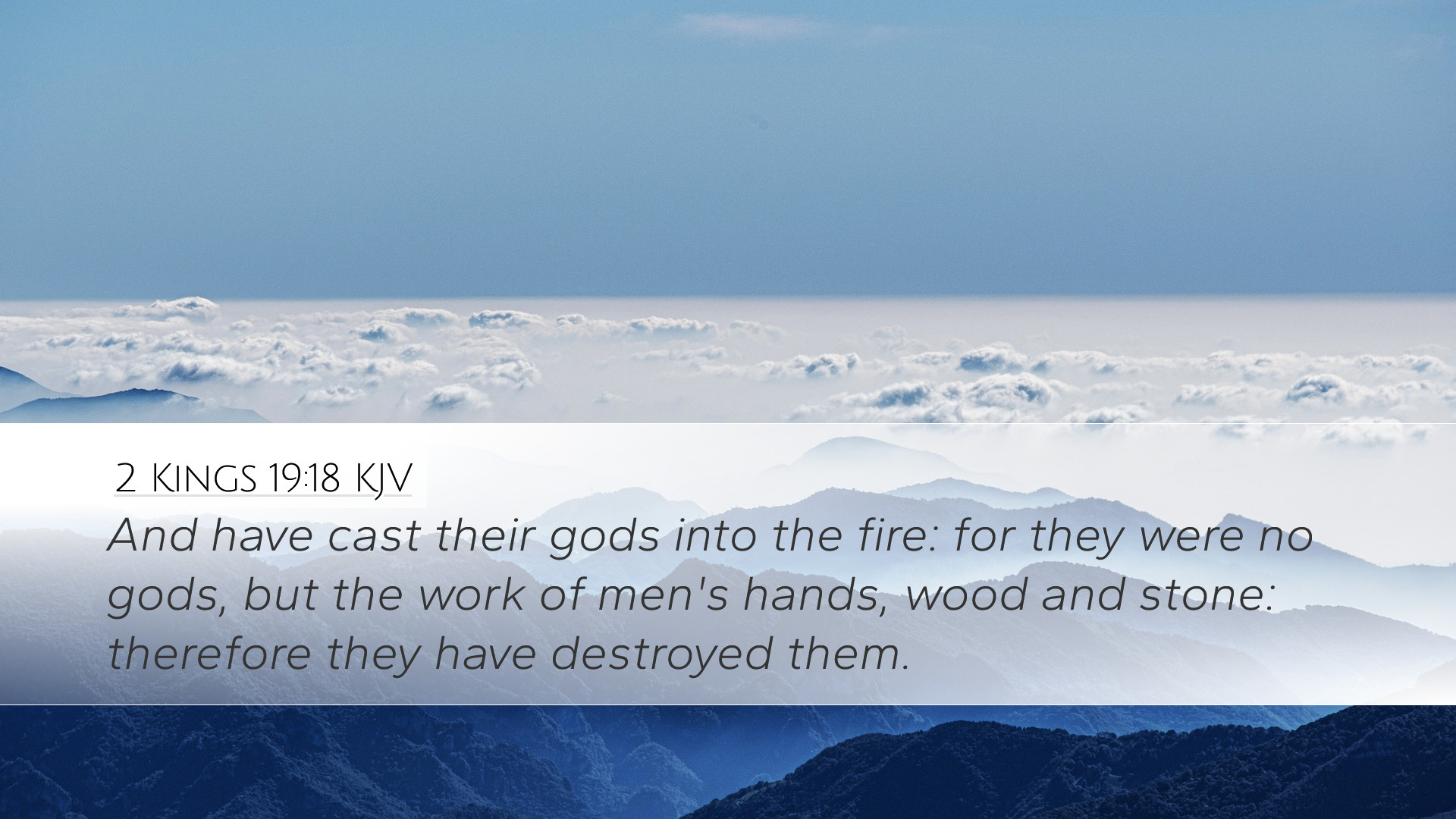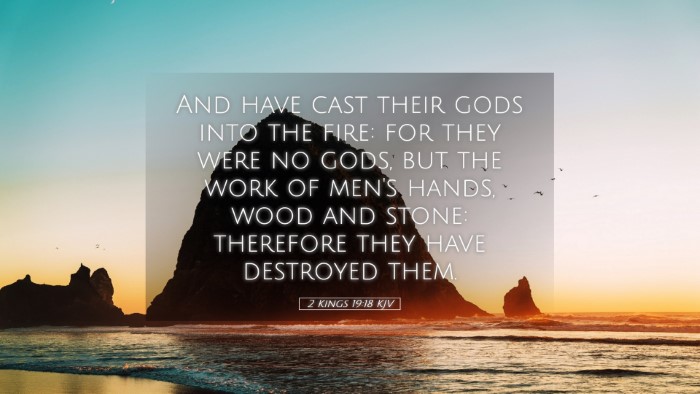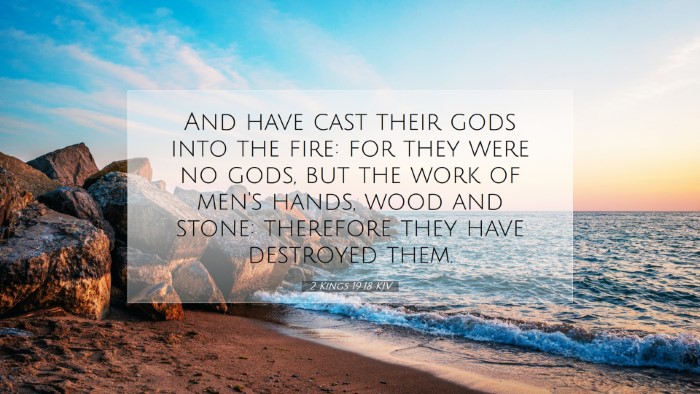Commentary on 2 Kings 19:18
Verse Text: "And have cast their gods into the fire: for they were no gods, but the work of men’s hands, wood and stone: therefore they have destroyed them."
Introduction
The passage of 2 Kings 19:18 provides a profound reflection on the nature of idolatry and the sovereignty of God. In this verse, the King Hezekiah addresses the futility of dependence on false gods, illustrating the contrast between the living God of Israel and the lifeless idols that men create. This commentary synthesizes insights from public domain sources, aiming to provide clarity for pastors, students, theologians, and scholars.
Contextual Background
To fully grasp the significance of this verse, one must understand its historical and theological context. Hezekiah was facing the Assyrian empire, a formidable power led by Sennacherib, who mocked the worship of Yahweh and boasted of his military conquests. The ensuing tension reflects not just a geopolitical struggle but a profound spiritual confrontation.
The Futility of Idolatry
Matthew Henry emphasizes that the idols of the nations were mere products of human craftsmanship—"the work of men’s hands." This repetition underscores humanity's tendency to create what they can control, contrasting sharply with the sovereign God who transcends human limitation.
Albert Barnes adds that these false gods, fashioned from wood and stone, highlight the blindness of nations in worshiping that which lacks life and power. The transformation of these idols into objects of scorn by Hezekiah’s people serves as a reminder that true faith is rooted in the dynamic relationship with a living God, rather than in lifeless relics.
The Nature of True Worship
In presenting this stark distinction, the text compels believers to evaluate the object of their affections and worship. Adam Clarke reflects on how faith should not rest on material objects, but rather on the eternal and omnipotent nature of God. This sentiment reminds the reader that worship must be directed toward that which is eternal, trustworthy, and capable of delivering from peril.
Theological Implications
- Divine Sovereignty: The acknowledgment that the Assyrians destroyed other nations' idols challenges believers to affirm their faith in God's sovereign authority over all earthly powers.
- The Purpose of Trials: Hezekiah’s confidence during a time of disparagement illustrates God’s purpose even amid trials—He is revealing His power and the futility of man’s efforts.
- Call to Repentance: The destruction of useless idols serves as a call for nations, and individuals, to repent from false worship and return to the true God.
Practical Application
For modern believers, this passage encourages a deep introspection regarding the idols that may have crept into their lives. The exhortation to destroy those idols—be they material possessions, status, or unhealthy attachments—echoes Hezekiah's spiritual leadership.
Pastors may find in this text a rich vein for preaching about the necessity of rooting out idolatry in contemporary culture. The call to embrace a vibrant faith based on a living relationship with God remains as relevant today as it was in the days of the kings of Israel.
Conclusion
2 Kings 19:18 stands as a reminder of God's unmatched authority and the reality of human helplessness in the face of the divine. As Hezekiah points out, the worship of created idols leads only to destruction, while reliance on the true God brings hope and deliverance. This passage invites reflection on the sources of spiritual strength and encourages a return to authentic worship, characterized by reverence for the Creator.


